
What You Need to Know About Stone Town Zanzibar in 2024-2025
Located on the western coast of the beautiful island of Zanzibar, Stone Town is a place that resonates with history, culture and vibrant life. This UNESCO World Heritage Site is renowned for its winding alleys, bustling markets, and a unique blend of architectural styles influenced by centuries of trade and cultural exchange.
In this blog, we’ll dive into the rich history of Stone Town, explore its significance, discover must-visit spots, savor the local cuisine, and highlight events to look forward to in 2024-2025. Whether planning a trip or just curious about this wonderful place, we’ve got you covered.
A Glimpse into History
Early History
The story of Stone Town Zanzibar dates back to the 9th century when it emerged as a vital trading post along the Swahili Coast. Arab traders arrived and established trade routes that connected East Africa with the Middle East and beyond. The term “Swahili” itself comes from the Arabic word “sahil,” meaning coast. This melding of cultures laid the groundwork for the vibrant society that Stone Town would become.
Colonial Era
In the 15th century, the Portuguese made their mark, capturing the city for a brief period. However, it was the Omani Arabs who would dominate the region in the 17th century, making Zanzibar their capital. Under Omani rule, Stone Town flourished as a center for the spice trade and a hub for the slave trade. The notorious Old Slave Market, now a memorial, reminds us of this dark chapter in history.
The British took control in the late 19th century, and during this time, Zanzibar’s influence continued to grow. The island became a significant player in the global spice market, earning the nickname “Spice Island.” The mix of Arab, Persian, Indian, and European influences can still be seen in the unique architecture, language and culture of Stone Town Zanzibar today.
Independence and Modern Era
After the Zanzibar Revolution in 1964, which resulted in the overthrow of the Sultan, the island gained independence. This event drastically changed the social and political landscape, and the new government focused on reclaiming and preserving the island’s rich cultural heritage. Today, efforts to restore and maintain Stone Town’s historical sites are ongoing, attracting tourists from around the world.
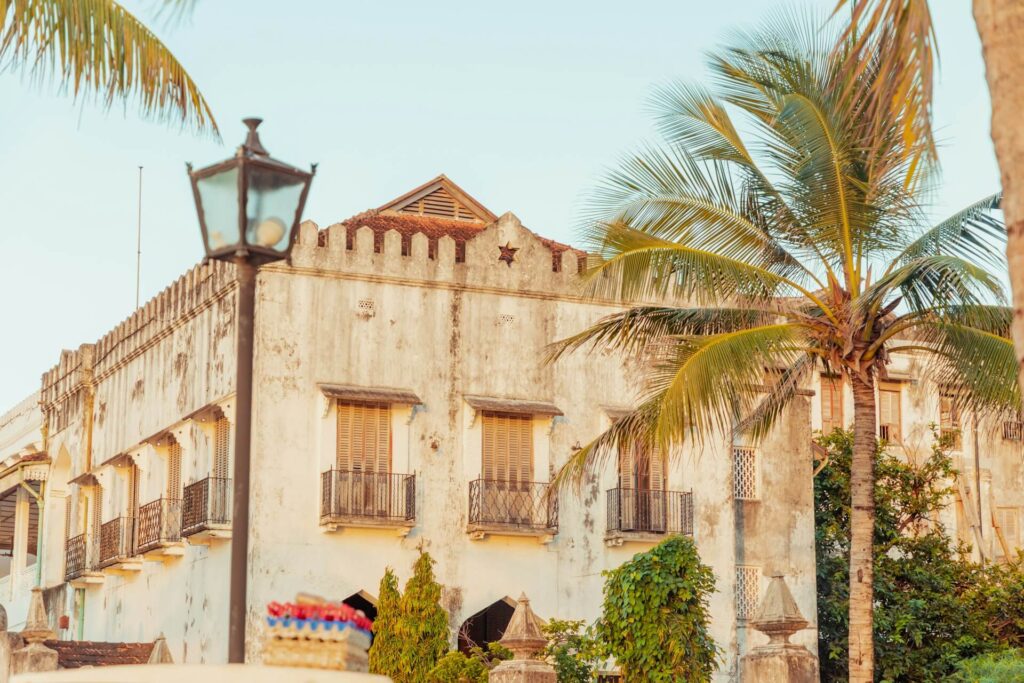
The Significance of Stone Town
Cultural Heritage
Stone Town is not just a beautiful place, it’s a living testament to a history that shaped the region. The architecture reflects its diverse influences, with intricately carved wooden doors, narrow streets and colorful buildings. Walking through the streets, you can feel the pulse of history in every corner. The mix of cultures contributes to a unique local identity that continues to thrive.
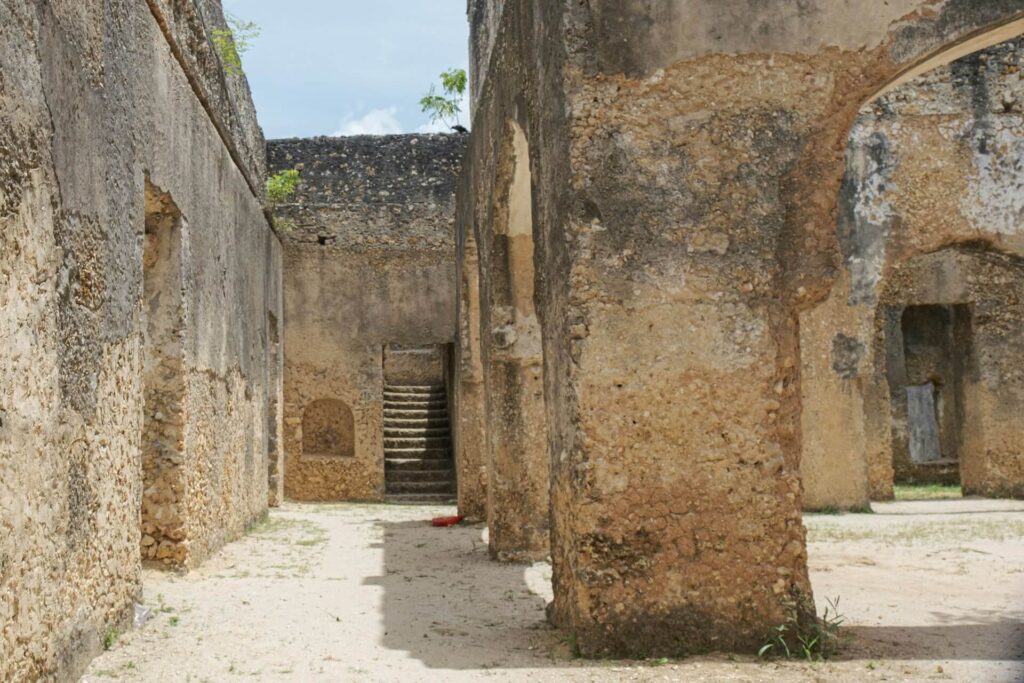
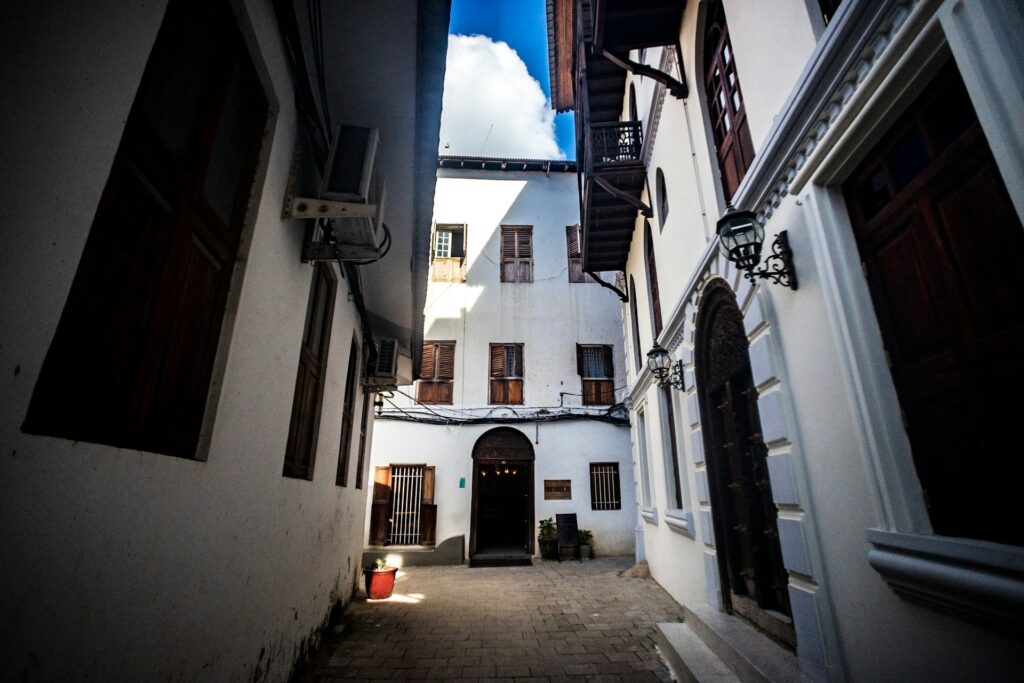
Social and Economic Importance
Tourism plays a significant role in Stone Town’s economy. Visitors come to experience the rich history, stunning architecture, and vibrant markets. The community actively participates in cultural events and festivals, showcasing their traditions and talents. These events not only promote local culture but also foster a sense of unity and pride among residents.
Places to Visit in Stone Town
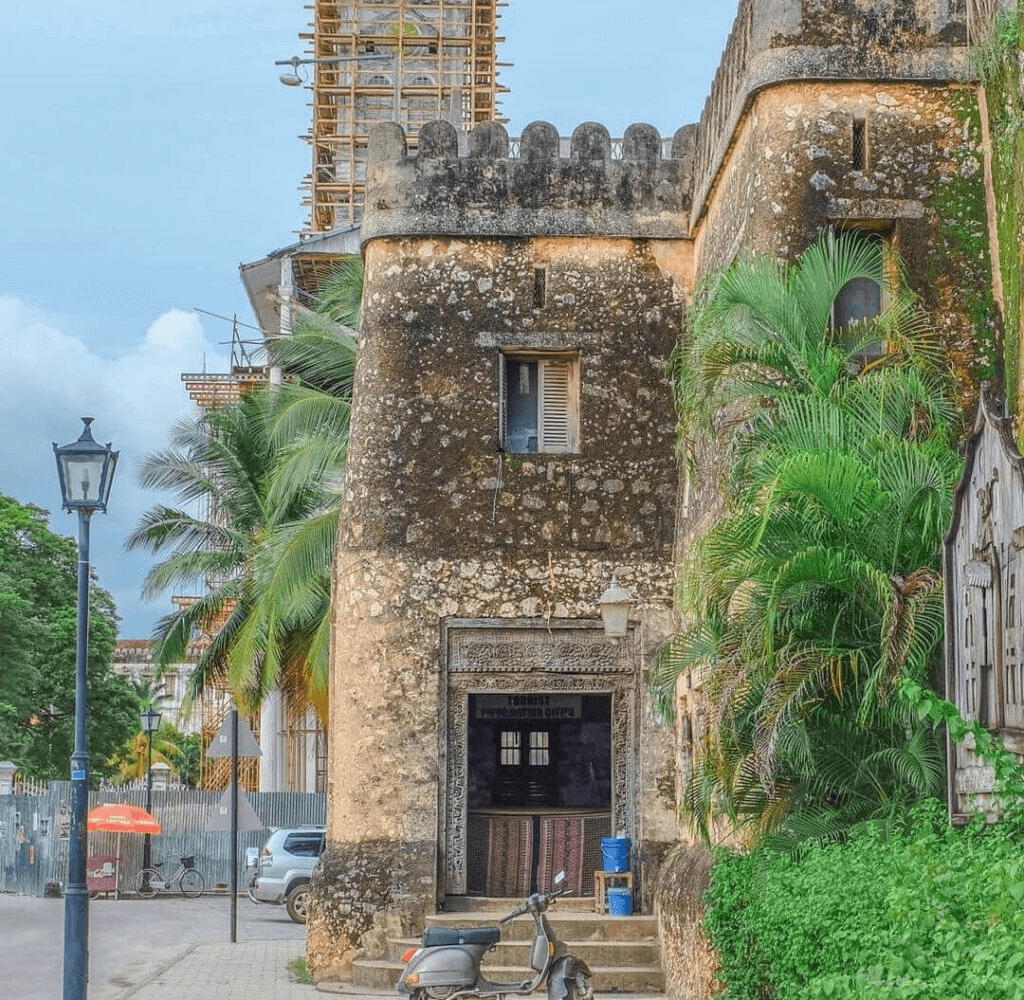
Forodhani Gardens
Start your exploration at Forodhani Gardens, a lively park located by the waterfront. It’s a perfect spot to relax and enjoy the sea breeze. In the evenings, the gardens transform into a bustling food market where you can indulge in local delicacies. Stalls serve everything from fresh seafood to delicious Zanzibari snacks. Don’t miss the chance to try the famous Zanzibar pizza!
The Old Fort (Ngome Kongwe)
Just a short walk from Forodhani Gardens, you’ll find the Old Fort. Built in the late 17th century, this impressive structure has served various purposes, from a military fortress to a cultural center. Today, it hosts art exhibitions, performances, and markets, making it a vibrant spot for visitors to experience local culture.
House of Wonders (Beit el-Ajaib)
Another must-visit site is the House of Wonders, Zanzibar’s first building to have electricity and an elevator. This iconic structure showcases exhibitions on the island’s history, culture, and natural environment. Its stunning architecture and panoramic views from the rooftop make it a favorite among tourists.
Zanzibar National Museum of History and Culture
For those interested in delving deeper into Zanzibar’s past, the Zanzibar National Museum of History and Culture is a treasure trove of artifacts and exhibits. Here, you can explore the island’s history, including the spice trade and the impact of colonization. The museum’s collection highlights the diverse cultures that have influenced Zanzibar.
Freddy Mercury Museum
Music lovers will appreciate the Freddy Mercury Museum, dedicated to the legendary Queen frontman born in Zanzibar. The museum houses memorabilia and personal items, giving visitors a glimpse into his life and connection to the island. It’s a small but fascinating stop for fans of the iconic musician. you can also visit the Freddy Mercury house in Stone Town where he spent his childhood.
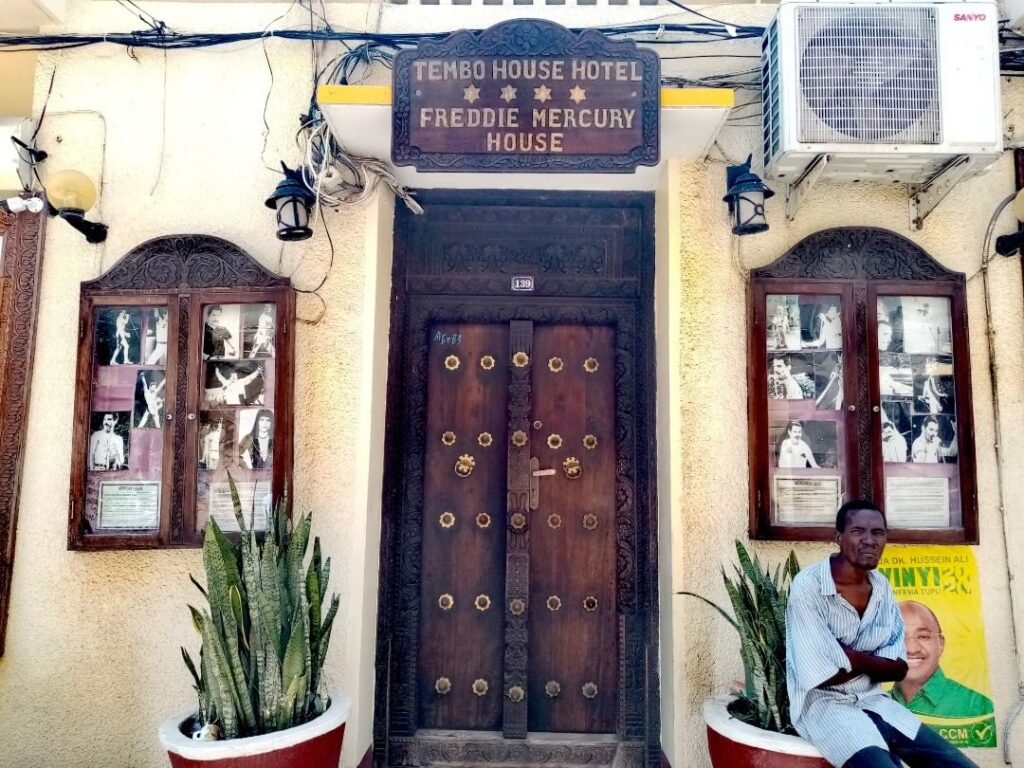
Old Slave Market Memorial

While exploring Stone Town, it’s essential to acknowledge its darker history. The Old Slave Market Memorial serves as a poignant reminder of the horrors of the slave trade. The site includes a chapel and a museum that honor the memory of those who suffered. It’s a powerful experience that underscores the importance of remembrance and reflection.
St. Joseph’s Cathedral
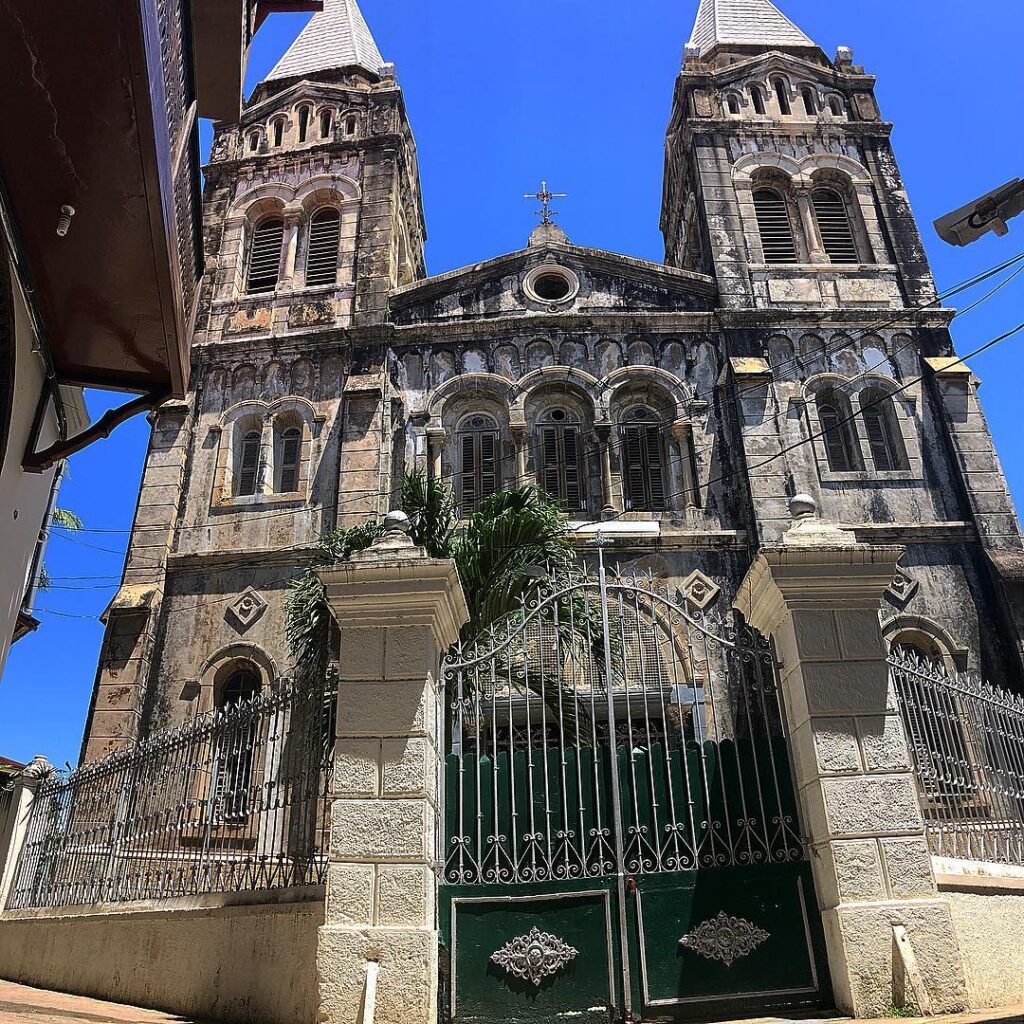
This stunning cathedral, built in the late 19th century, is a beautiful example of Gothic architecture in a predominantly Muslim area. Visitors are welcome to explore its interior, which features beautiful stained glass and intricate carvings. It’s a peaceful place in the heart of the bustling town.
The Arab Fort
The Arab Fort, another historical gem, showcases the rich architectural heritage of Zanzibar. Its walls, constructed from coral stone, tell stories of battles and conquests. Today, the fort hosts cultural events and serves as a venue for local artists and performers.
Hamamni Persian Baths
The Hamamni Persian Baths, built in the late 19th century, offer a fascinating look into the bathing culture of the time. Although not operational today, the structure’s intricate architecture and design make it a noteworthy visit. It reflects the blend of Persian and Arab influences that characterize Stone Town.
Darajani Market
No visit to Stone Town is complete without a trip to Darajani Market. Here, you’ll find a colorful array of fruits, spices, and local goods. The vibrant atmosphere and friendly vendors make it an excellent spot for soaking in the local culture. Don’t forget to bargain for souvenirs like handcrafted jewelry, textiles, and spices.
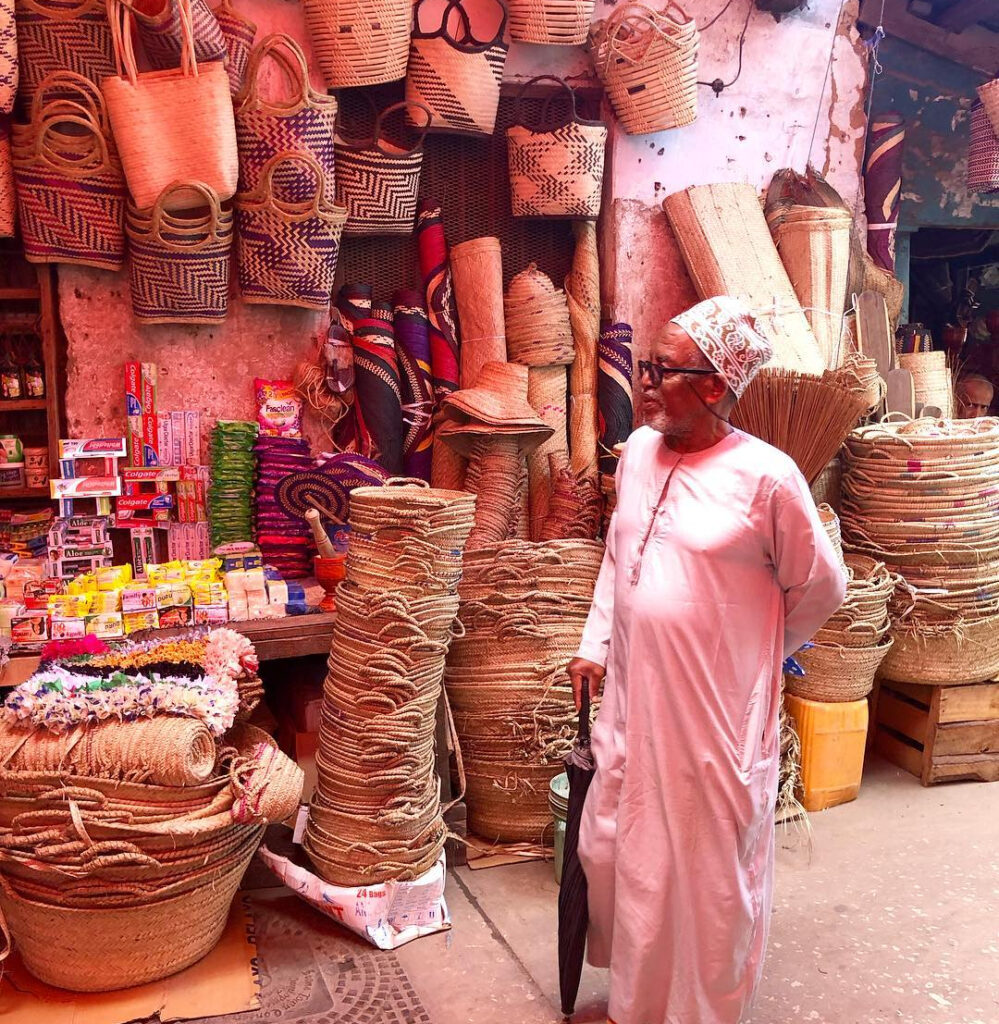
Souvenirs and Handicrafts
Zanzibar is known for its beautiful crafts, including intricately carved wooden items, colorful fabrics, and unique jewelry. Local artisans showcase their work in various shops and markets, offering visitors a chance to take home a piece of Zanzibar’s artistic heritage.
Culinary Scene in Stone Town
Zanzibari cuisine is a delightful fusion of flavors influenced by its diverse history. Spices play a significant role, with cloves, cinnamon, and nutmeg being just a few of the aromatic ingredients that define local dishes.
Must-Try Dishes
- Biryani: A fragrant rice dish typically cooked with marinated meat, spices, and herbs. Zanzibari biryani often includes a unique blend of spices that set it apart from other varieties.
- Ugali: A staple food made from maize flour, ugali is a dense porridge served with various side dishes.
- Seafood: With the Indian Ocean at its doorstep, fresh seafood is abundant. Try grilled fish, calamari, or shrimp, often seasoned with local spices.
Forodhani Gardens Night Market

The Forodhani Gardens night market is a culinary adventure in itself. As the sun sets, food stalls pop up, offering mouthwatering street food. Sample freshly grilled seafood, spicy samosas, and the famous Zanzibar pizza—a unique creation filled with various ingredients, cooked on a hot grill.
Events and Festivals in 2024-2025
Stone Town is vibrant with life and culture, and several events throughout the year celebrate its rich heritage.
Annual Cultural and Music Festivals
- Sauti za Busara: This annual music festival typically takes place in February and features a lineup of local and international artists. It’s a fantastic opportunity to experience the island’s vibrant music scene.
- Zanzibar International Film Festival: Usually held in July, this event showcases films from Africa and the diaspora, promoting cultural exchange and storytelling.
Travel Tips for Visiting Stone Town
Best Time to Visit
The ideal time to visit Stone Town is during the dry seasons, from June to October and December to February. The weather is pleasant which makes it perfect for exploring. However, the off-peak months can also offer a quieter experience with fewer tourists.
Getting Around
Stone Town is compact and best explored on foot. The narrow streets can be a bit confusing, but getting lost is part of the adventure! Alternatively, you can use local taxis or ride-hailing apps to navigate the area.
What to Wear
Zanzibar is a predominantly Muslim island, so dressing modestly is appreciated, especially in Stone Town. Lightweight clothing is ideal for the warm beach climate. Bring along comfortable shoes for walking and exploring.
Currency and Payments
The local currency is the Tanzanian Shilling (TZS). Credit cards are accepted in many hotels and restaurants, but it’s a good idea to carry cash for local markets and smaller establishments.
Language
Swahili is the official language of Tanzania, but English is widely spoken, especially in tourist areas. Learning a few basic Swahili phrases can enhance your experience and connect you with locals.
Conclusion
Stone Town is a captivating destination that offers a unique blend of history, culture, and stunning scenery. From its rich heritage to its vibrant markets and delicious cuisine, there’s something for everyone to enjoy. Whether you’re exploring historical sites, indulging in local dishes, or soaking in the lively atmosphere, you’ll find that Stone Town has a way of captivating your heart.
If you’re ready to explore the wonders of Zanzibar, look no further. At Maximilian Adventures, we offer fantastic tours to Zanzibar, including visits to Stone Town, where you can experience all this magical place has to offer.
Join us for an unforgettable journey and discover the beauty of Zanzibar with the experts.
Recent Posts
Best Usdt Casinos With Instant Deposit & No-kyc 750
Where to Stay in Tanzania | Lodges, Resorts and Campsites
Why Chapwani Island Should Be on Your Travel List in 2025

Safari



